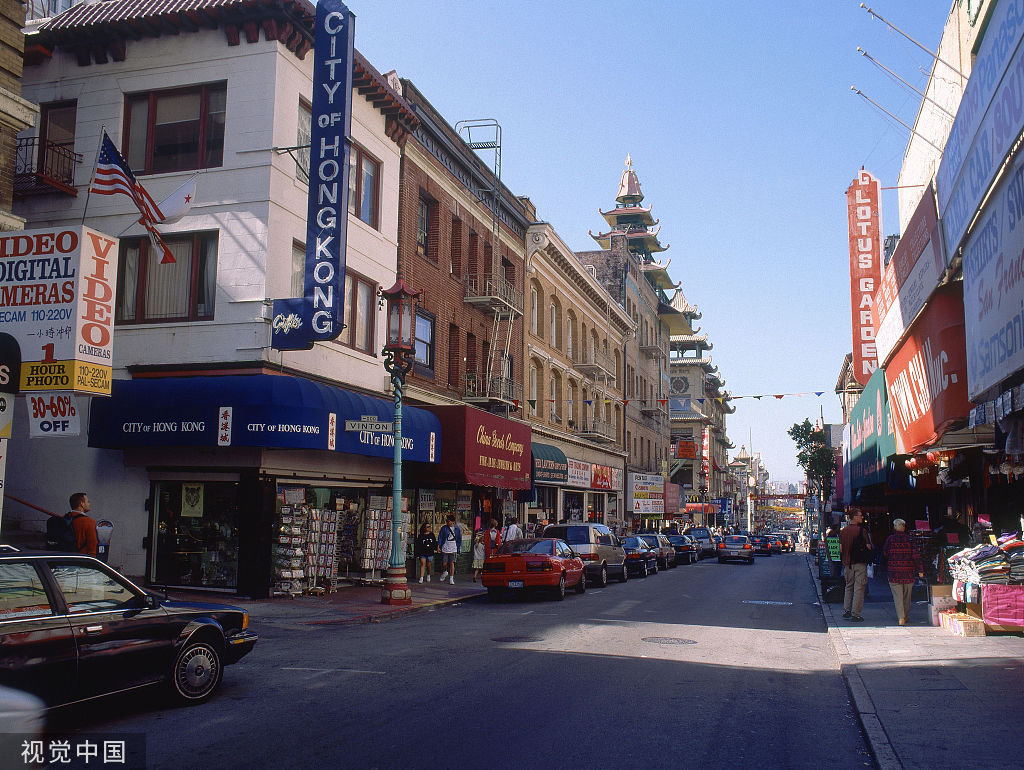
The state of the US-China relationship and tense rhetoric used by politicians and the media has a huge impact on the way Chinese Americans feel they are treated by strangers and coworkers, research has found.
Most of the Chinese Americans recently polled by the non-profit organization the Committee of 100 and NORC at the University of Chicago believe that the US-China relationship is strained.
At least 61 percent said that the language used by US media when reporting on relations between the countries negatively affected how strangers treated them. A quarter said their relationship with acquaintances and coworkers had been impacted.
“Understanding the … discrimination and political perspectives of Chinese Americans is essential to create inclusive and informed policies,” said Cindy Tsai, interim president of the Committee of 100.
With just weeks before the US general election, trade and business with China is a key topic for Democratic Vice-President Kamala Harris and Republican Donald Trump.
Trump regularly mentions his proposed policies for China, such as a possible 60 percent tariff on goods imported into the US.
Harris has not mentioned China as much, or specifically addressed her stance on US-China relations. But the Biden-Harris administration did condemn racist rhetoric toward Asian Americans in 2021.
As a voting bloc, Asian Americans saw a 20 percent increase in their share of the electorate between the 2016 and 2020 presidential elections, the highest rate of change among all racial groups.
The largest group of Asian Americans are Chinese, with a population of 5.8 million.
Yet, since the COVID-19 pandemic in March 2020, anti-Asian hate crimes have soared.
Around two-thirds polled by the Committee of 100 said that they faced at least one form of discrimination in an average month.
Some feared that heated political rhetoric about US-China relations could further inflame discrimination.
Last year, 49 percent of Asians Americans and Pacific Islanders (AAPI) said they had been the victim of a hate crime, and 26 percent a physical attack, a September report by Stop AAPI Hate and the National Opinion Research Center at the University of Chicago found.
Others reported feeling nervous while out in places like New York City, the Asian American Foundation (TAAF) found in its research in May.
At least three out of four said they had adjusted their behavior as they went about their day.
However, less than half who had experienced a crime or abuse had reported it to anyone or the NYPD due to not wanting to draw attention to themselves, feeling uncomfortable, or simply not knowing how to file a police report, TAAF said.
To make the community feel safer, some told the non-profit TAAF that they wanted to see a change in the way Asians were spoken about nationwide.
“Increased investments in inclusive education and narrative change initiatives, like those we support at TAAF, will help the broader community recognize the full humanity of AAPIs,” Eugena Oh, TAAF New York regional director, told China Daily.
Several key business speakers also echoed those sentiments at the Committee of 100’s annual conference and gala in New York in April.
Many stressed that maintaining a cordial relationship and open dialogue between the US and China was vital for bilateral business and positive people-to-people exchanges.
Former US ambassador to China Max Baucus told China Daily at the April conference that, “Much more needs to be done in dialogue, communication, back and forth meetings, between American people and Chinese people.”


